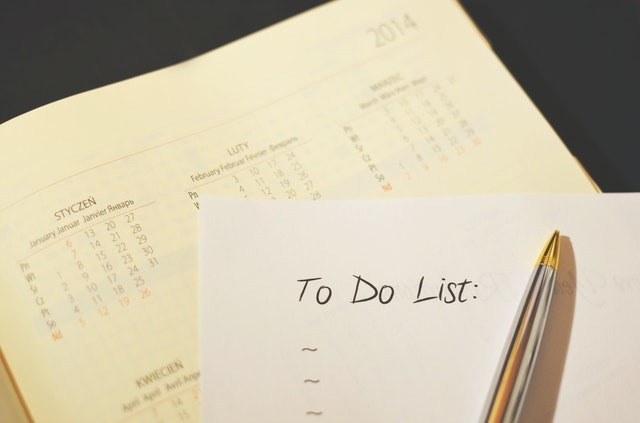Have you observed that a task will take as much or as little time as you plan for it to? In other words, if you allow a 30-minute task to take an hour or more, it will. Whether you work from home or work in your office, you need to make the best use of your time to be productive. But this logic is not restricted to just work – effective management of your time is important as well for other activities such as household chores. Follow along to learn five time management tips to help you make the best use of your day.
Create a to-do list
The best time management tip is to plan how you’ll use your time. To do that, you must list all the tasks you want to carry out the following day in a to-do list. Categorize the tasks into the following groups using Eisenhower’s principle:
- Urgent and important tasks
- Important but not urgent tasks
- Urgent but not important tasks
- Neither important nor urgent tasks

Complete these groups of tasks in the order they are listed above. All urgent and important tasks should be done first, then you can do the important but not urgent tasks. You may be wondering why you should do important but not urgent tasks before urgent but not important tasks, and the reason is simple: when a task is not important, its urgency is meaningless. Furthermore, you won’t find many tasks that are urgent but not important. The last category of tasks to handle is the one that is neither important nor urgent.
Set a time limit for each task
Another important time management tip is to set a time limit for each task. This will let you know if you can even finish all the necessary tasks within your day. In the course of setting a time constraint, you may discover that the allocated time may not be enough. In that situation, you may either delegate some of the tasks to someone else or postpone them. If you don’t bother to set time limits, you may not discover the problem until it’s too late.

Imagine what would happen if you weren’t able to get some crucial reports ready for a management meeting, and you didn’t realize you wouldn’t be able to finish the reports until the meeting was about to begin. Setting time limits would help you prevent such an embarrassing situation.
You must take some breaks
People are not meant to work for long hours without taking a break. If you work without taking breaks, the law of diminishing returns is likely to set it in on your productivity. Once you’re spent, your productivity begins to drop gradually until it becomes zero. But after taking a break, you feel revitalized, refreshed, reinvigorated, and re-energized.

In fact, you need multiple break sessions. Working for long hours without taking breaks builds a solid foundation for burnout. During the break, you can grab some snacks, take a nap, or watch movie trailers. Just do anything that is relaxing and entertaining. When you get back to work, you’ll find that your productivity has increased again.
Always time yourself
It is necessary that you time yourself while carrying out each task. When you do, you’ll quickly discover when a task is taking more time than its time limit. In addition, you should make efforts to improve your speed each time. If a task takes you 75 minutes to finish, you should work toward reducing it to 60 minutes the next time. If you succeed, you can try and reduce the time further until it can no longer be reduced.

After all, your mastery of a task increases each time you do it, so you speed should follow the same pattern. However, mind your accuracy. Don’t sacrifice accuracy for speed.
Do related works together
An overlooked time management tip is to arrange related tasks and carry them out consecutively. For instance, if you’re a salesperson, it is better to do all your reports one after the other before you leave the office for fieldwork.

The same applies for other professionals and their tasks. As a delivery driver, it makes sense to map out delivery locations in the same community consecutively. This will save you both time and fuel. The same applies to your time at home. It makes much more sense to do all your kitchen chores before you leave to fold your laundry or vacuum.
Final Thoughts
While we’ve discussed five key time management tips that you should always do, we should also mention one that carries a warning. Only try multitasking when you are sure you can handle it. If the tasks require precision and accuracy, exercise caution. The quality of the tasks you do individually will always be better than that of the tasks you do simultaneously. Along with these tips, be sure to steer clear of time management myths that may trap you into working harder.

